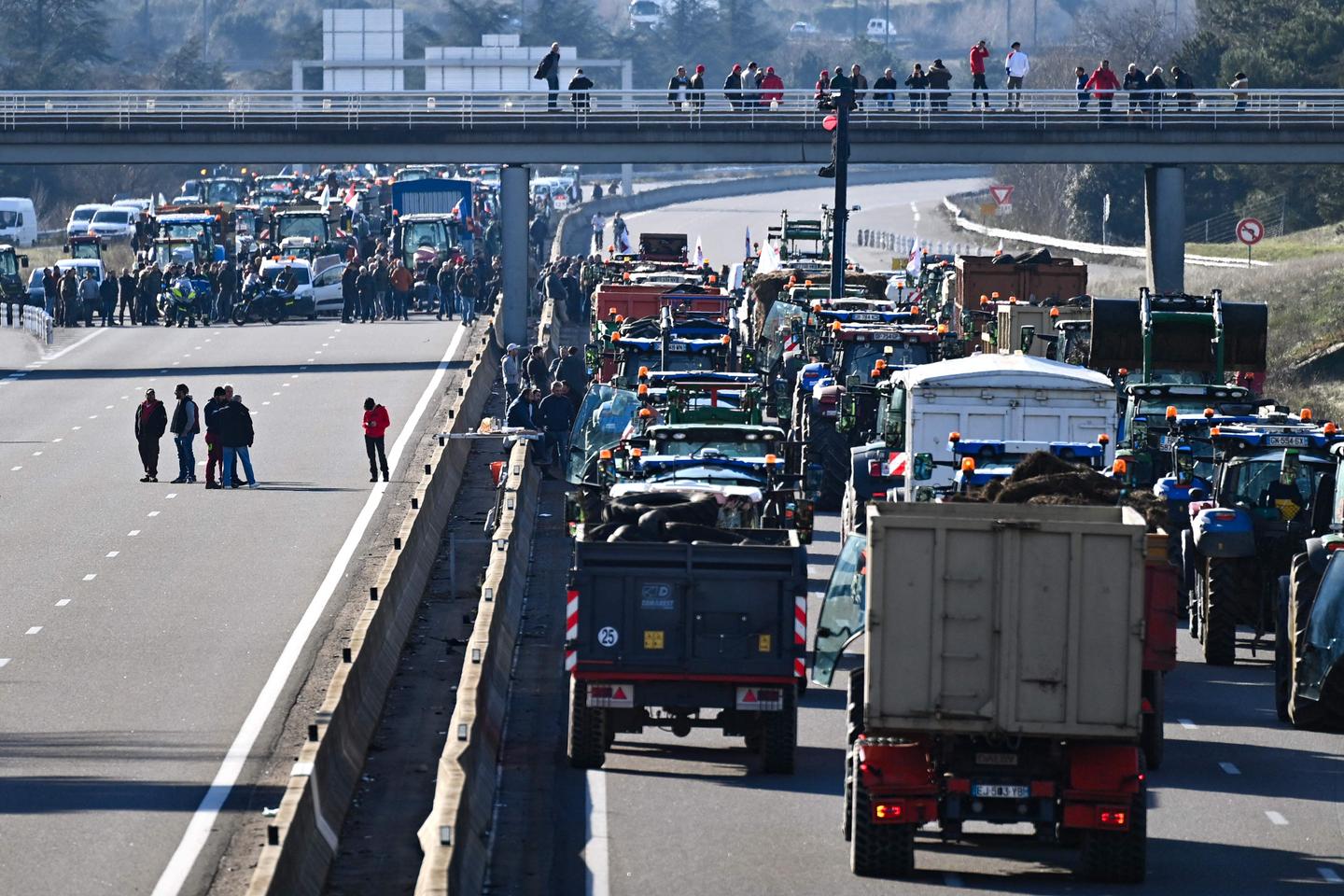


Blocked roads, calls to action in the media: As farmers continued to push for "concrete measures" on Tuesday, January 23 – after talks with Prime Minister Gabriel Attal's government remained deadlocked – agricultural sociologist François Purseigle, associate researcher at the Cevipof (a prestigious Paris political science research center) and professor at the Engineering Faculty of Agricultural and Life Sciences of Toulouse (ENSAT), believes that farmers are "victims of unrelenting paradoxical injunctions."
How do you explain this explosion of anger in the farming community?
It's an anger that's been latent for months, if not years. The southwestern region, Occitanie, where the movement began, is a region that has faced repeated economic and health crises. In some areas, there is a strong feeling of social relegation, with incomes lower than the national average, which makes it difficult to renew generations [of farmers].
Farmers and winegrowers are on the front lines of climate change and water access difficulties, which fuel usage conflicts. And, like the rest of their profession, they are victims of unrelenting paradoxical injunctions. In Occitanie, for example, they have tried to meet consumer expectations and have become the country's leading organic producers. Yet with rising inflation, they see consumers turning away from them and buying cheaper, non-organic products.
What are some other reasons for their exasperation?
They see their neighbors opposing their projects for mutually owned tools, such as shared chicken coops, even as they applaud a workshop or factory opening in a rural area. Only to rush off to [supermarket chain] Franprix to buy industrial chicken raised in Brazil!
They also don't understand why non-road use diesel is to be taxed instead of jet fuel, when it's repeatedly said that we shouldn't be flying.
The country does not want to see them as they are, with their difficulties and the projects they want to carry out. That's why the movement manages to bring together such disparate realities. And these difficulties are found throughout Europe.
With their demands, these farmers are launching the European election campaign, which had been struggling to get off the ground. They are putting the agricultural question on the agenda, the CAP [Common Agricultural Policy] being the only real common European policy.
Is it relevant to draw a parallel between the current farmers' movement and the 2018-2019 'Yellow Vests' movement in France?
No, there aren't really any similarities with the Yellow Vests movement. The farmers' demands remain very corporatist, even if there is a desire for social appreciation. What's more, whereas the Yellow Vests movement was disorganized and had not been anticipated by mediating bodies, the farmers' movement started from local unions and federations, even if some of them were taken by surprise by the scale of the movement. They have also received the support of rural mayors who have not challenged their actions of turning signs upside down [at the entrances and exits of villages], whereas the same cannot be said for the Yellow Vests.
You have 50% of this article left to read. The rest is for subscribers only.
